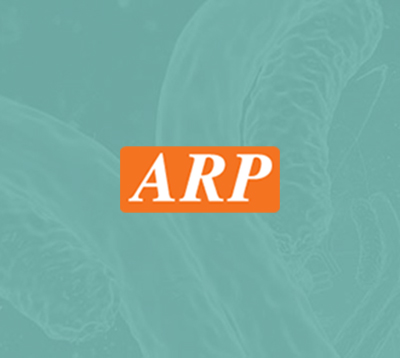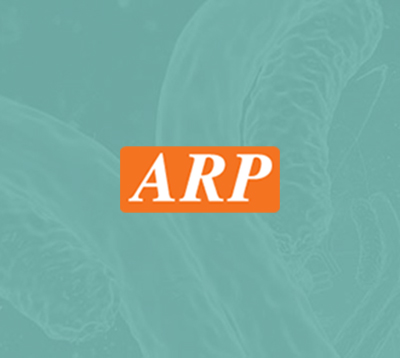| Product Name | Anti-C4D Polyclonal Antibody, FITC |
|---|---|
| Description | This gene encodes the acidic form of complement factor 4, part of the classical activation pathway. The protein is expressed as a single chain precursor which is proteolytically cleaved into a trimer of alpha, beta, and gamma chains prior to secretion. The trimer provides a surface for interaction between the antigen-antibody complex and other complement components. The alpha chain may be cleaved to release C4 anaphylatoxin, a mediator of local inflammation. Deficiency of this protein is associated with systemic lupus erythematosus and type I diabetes mellitus. This gene localizes to the major histocompatibility complex (MHC) class III region on chromosome 6. Varying haplotypes of this gene cluste exist, such that individuals may have 1, 2, or 3 copies of this gene. Two transcript variants encoding different isoforms have been found for this gene. Rabbit polyclonal Antibody to human C4d FITC conjugate |
| Host | Rabbit |
| Immunogen | Synthetic peptide specific for human C4d conjugated to KLH (keyhole limpet hemocyanin) |
| Specificity | Human C4d |
| Reactivity | Human |
| Applications | IHC, IHC-P |
| Form | FITC, affinity purified, in PBS, containing Stabilizer and 0.1% sodium azide |
| Storage | 2-8C |
| References |
1. Akalin, E., Dinavahi, R., Friedlander, R., Ames, S., de Boccardo, G., Sehgal, V., Schröppel, B., Bhaskaran, M., Lerner, S., Fotino, M., Murphy, B., Bromberg, J.S. Addition of Plasmapheresis Decreases the Incidence of Acute Antibody-Mediated Rejection in Sensitized Patients with Strong Donor-Specific Antibodies. (2008), Clinical Journal of the American Society of Nephrology, 3: 1160-1167. Astor, T. L., Galantowicz, M., Phillips, A., Palafox, J. and Baker, P. (2009), Pulmonary Capillaritis as a Manifestation of Acute Humoral Allograft Rejection Following Infant Lung Transplantation. American Journal of Transplantation, 9: 409–412. Crystal P. Jenkins, Diana M. Cardona, Jennifer N. Bowers, Bahram R. Oliai, Robert W. Allan, and Sigurd J. Normann (2010) The Utility of C4d, C9, and Troponin T Immunohistochemistry in Acute Myocardial Infarction. Archives of Pathology & Laboratory Medicine: February 2010, Vol. 134, No. 2, pp. 256-263. Csaba Galambos, Brian Feingold, and Steven A. Webber (2008) Characterization of C4d Immunostaining Utilizing Paraffin-Embedded Tissue of Nonpresensitized Pediatric Heart Transplant Patients. Pediatric and Developmental Pathology: May 2008, Vol. 11, No. 3, pp. 181-184. De Kort, H., Munivenkatappa, R. B., Berger, S. P., Eikmans, M., Van Der Wal, A., De Koning, E. J., Van Kooten, C., De Heer, E., Barth, R. N., Bruijn, J. A., Philosophe, B., Drachenberg, C. B. and Bajema, I. M. (2010), Pancreas Allograft Biopsies with Positive C4d Staining and Anti-Donor Antibodies Related to Worse Outcome for Patients. American Journal of Transplantation, 10: 1660–1667. Fedson, S.E., Daniel, S.S., Husain, A.N. (2008), Immunohistochemistry Staining of C4d to Diagnose Antibody-mediated Rejection in Cardiac Transplantation. The Journal of Heart and Lung Transplantation, 27: 372-379. Hisashi, Y., Yamada, K., Kuwaki, K., Tseng, Y.-L., Dor, F. J. M. F., Houser, S. L., Robson, S. C., Schuurman, H.-J., Cooper, D. K. C., Sachs, D. H., Colvin, R. B. and Shimizu, A. (2008), Rejection of Cardiac Xenografts Transplanted from α1,3-Galactosyltransferase Gene-Knockout (GalT-KO) Pigs to Baboons. American Journal of Transplantation, 8: 2516–2526. Rafiq, M. A., De Boccardo, G., Schröppel, B., Bromberg, J. S., Sehgal, V., Dinavahi, R., Murphy, B. and Akalin, E. (2009), Differential outcomes in 3 types of acute antibody-mediated rejection. Clinical Transplantation, 23: 951–957. Shimizu, A., Hisashi, Y., Kuwaki, K., Tseng, YL., Dor, F.J.M.F., Houser, S.L., Robson, S.C., Schuurman, HJ., Cooper, D.K.C., Sachs, D.H., Yamada, K., Colvin, R.B. Thrombotic Microangiopathy Associated with Humoral Rejection of Cardiac Xenografts from α1, 3-Galactosyltransferase Gene-Knockout Pigs in Baboons. (2008), American Journal of Pathology, 172(6): 1471–1481. Shimizu, A., Yamada, K., Yamamoto, S., Lavelle, J.M., Barth, R.N., Robson, S.C., Sachs, D.H., Colvin, R.B. (2005), Thrombotic Microangiopathic Glomerulopathy in Human Decay Accelerating Factor–Transgenic Swine-to-Baboon Kidney Xenografts. J Am Soc Nephrol, 16: 2732-2745. Torrealba, J. R., Samaniego, M., Pascual, J., Becker, Y., Pirsch, J., Sollinger, Hans., Odorico, J. (2008), C4d-Positive Interacinar Capillaries Correlates With Donor-Specific Antibody-Mediated Rejection in Pancreas Allografts. Transplantation, 86: 1849-1856. Taner, T., Gandhi, M. J., Sanderson, S. O., Poterucha, C. R., De Goey, S. R., Stegall, M. D. and Heimbach, J. K. (2012), Prevalence, Course and Impact of HLA Donor-Specific Antibodies in Liver Transplantation in the First Year. American Journal of Transplantation, 12: 1504–1510. |
| Supplier | ARP |
All Research Products are sold for laboratory RESEARCH USE ONLY and ARE NOT TO BE USED FOR HUMAN OR ANIMAL THERAPEUTIC OR DIAGNOSTIC APPLICATIONS. The information presented is believed to be accurate; however, said information and products are offered without warranty or guarantee since the ultimate conditions of use and the variability of the materials treated are beyond our control. Nothing disclosed herein is to be construed as a recommendation to use our products in violation of any patents. ARP American Research Products, Inc. does not submit its products for regulatory review by any government body or other organization, and we do not validate them for clinical, therapeutic or diagnostic use, or for safety and effectiveness. You are solely responsible for making sure that the way you use the products complies with applicable laws, regulations and governmental policies and for obtaining all necessary approvals, intellectual property rights, licenses and permissions that you may need related to your use. Under no circumstances shall ARP American Research Products, Inc. be liable for damages, whether consequential, compensatory, incidental or special, strict liability or negligence, breach of warranty or any other theory arising out of the use of the products available from ARP American Research Products, Inc. Nothing contained herein warrants that the use of the products will not infringe on the claims of any patents covering the product itself or the use thereof in combination with other products or in the operation of any process. ARP American Research Products, Inc. disclaims any and all representations or warranties of any kind whatsoever, express or implied, including without limitation any implied warranties of merchantability or fitness for a particular purpose, of non-infringement, or regarding results obtained through the use of any product, whether arising from a statute or otherwise in law or from a course of performance, dealing or usage of trade.




